Beginning a new school year can be tough for any child, but for kids living in foster families or who have been newly adopted, going back to school can come with its own unique set of challenges. No one knows this better than Ryan Senters, who runs Ohana — a nonprofit dedicated to helping foster children. Senters has 11 children, nine of whom he adopted out of foster care. He spoke with CafeMom to give his tips on a smooth transition back to school for foster and adopted children.
Keep reading to see his advice.
More from CafeMom: 11 Essentials Every Organized Mom Needs for Back-to-School Season
Practice what it will be like at school.
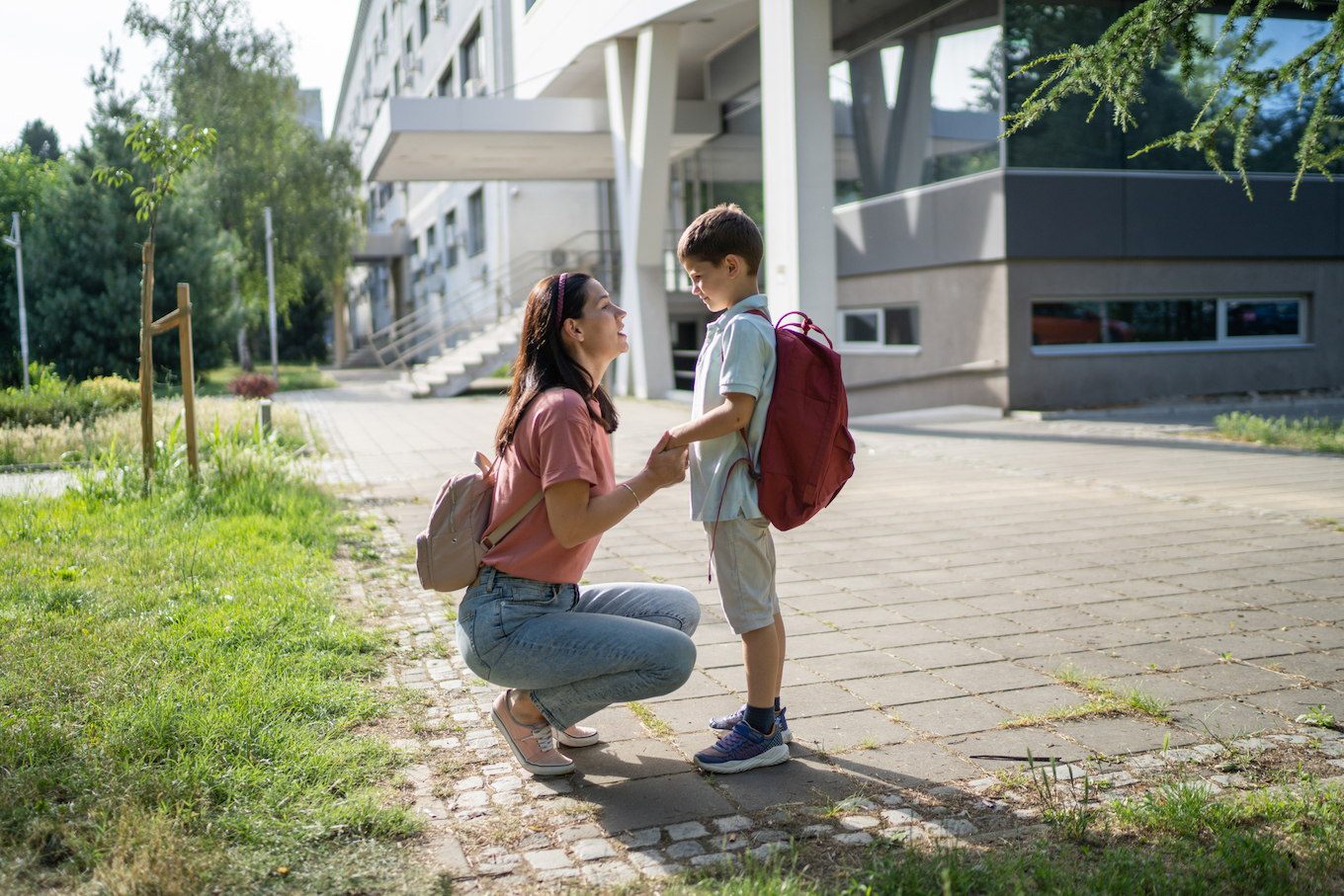
Senters says to ease anxiety about starting the school year, parents can prep their child so they know what to expect. "Like, 'Hey, you're gonna be going to kindergarten this year. It's gonna be a new school. This is what's exciting,'" he says.
Parents can even drive by the school or show them where their classroom will be. The more work parents put in before, the better things can go.
Prep for invasive questions.

Other students or even teachers may ask kids to talk about their parents or where they're from or if they have siblings. Senters says preparing a foster or adopted child for these conversations ahead of time can be helpful. One way parents can do that is by discussing the family dynamics at home and clarifying what the child wants to call the parents.
"It's almost like giving them permission to be able to talk about our family," Senters says. "You don't need to say, 'Hey, I'm, I'm in foster care. This is my foster parent.'" He adds, "Most times I've noticed that they wanna just introduce you like, oh, this is my dad. This is my mom … and sometimes they need to be given permission to be able to do that."
Go school supply shopping.
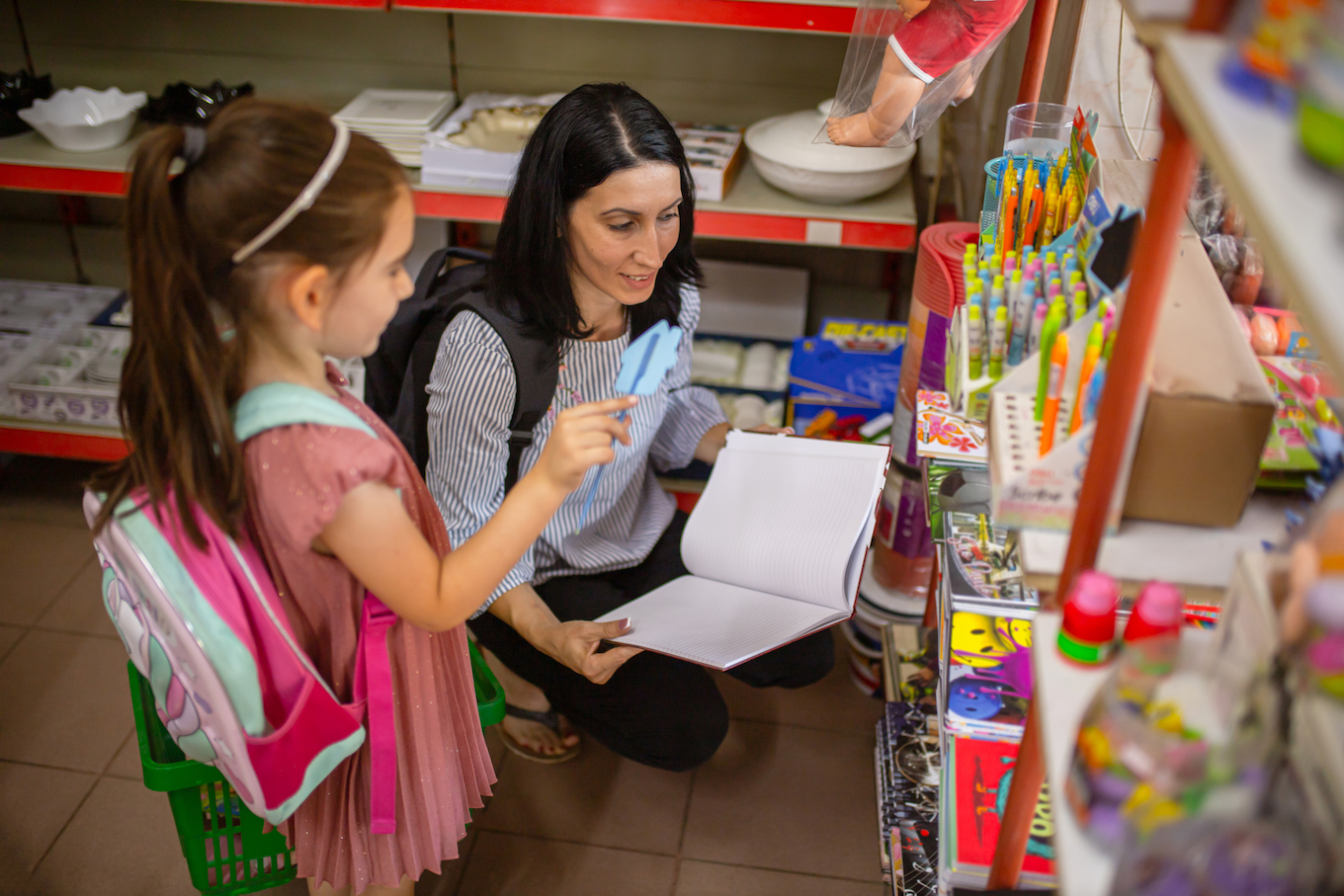
Letting the child pick out a few of their own items for school can create a special bonding moment and allow them to feel a little more in control. For his family, Senters always lets the children choose their own new shoes and backpack, and the older ones can also pick which electives they want to take.
More from CafeMom: I'm a Single Mom & 'Foster Care Was Written in the Stars for Me'
Meet the teacher.
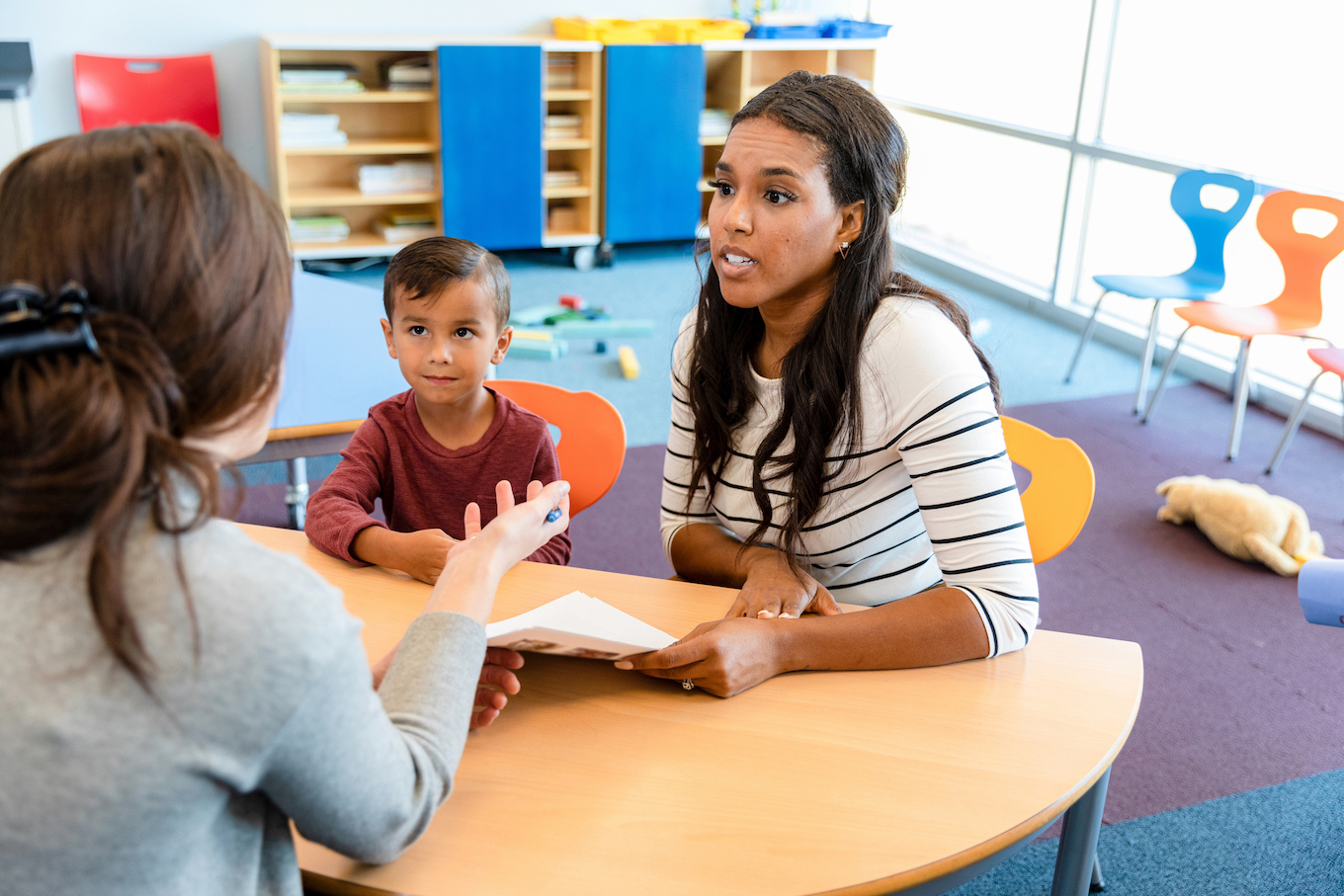
Senters recommends that parents meet with their child's teacher on a back-to-school night or something similar. "When we met with the teachers, administrators, they're very understanding," he says.
And, depending on the kid, it could be beneficial for them to meet the teacher ahead of time as well. For that route, though, Senters cautions to not make it too big of a deal, since many children just want to feel normal.
Don't tell their story for them.
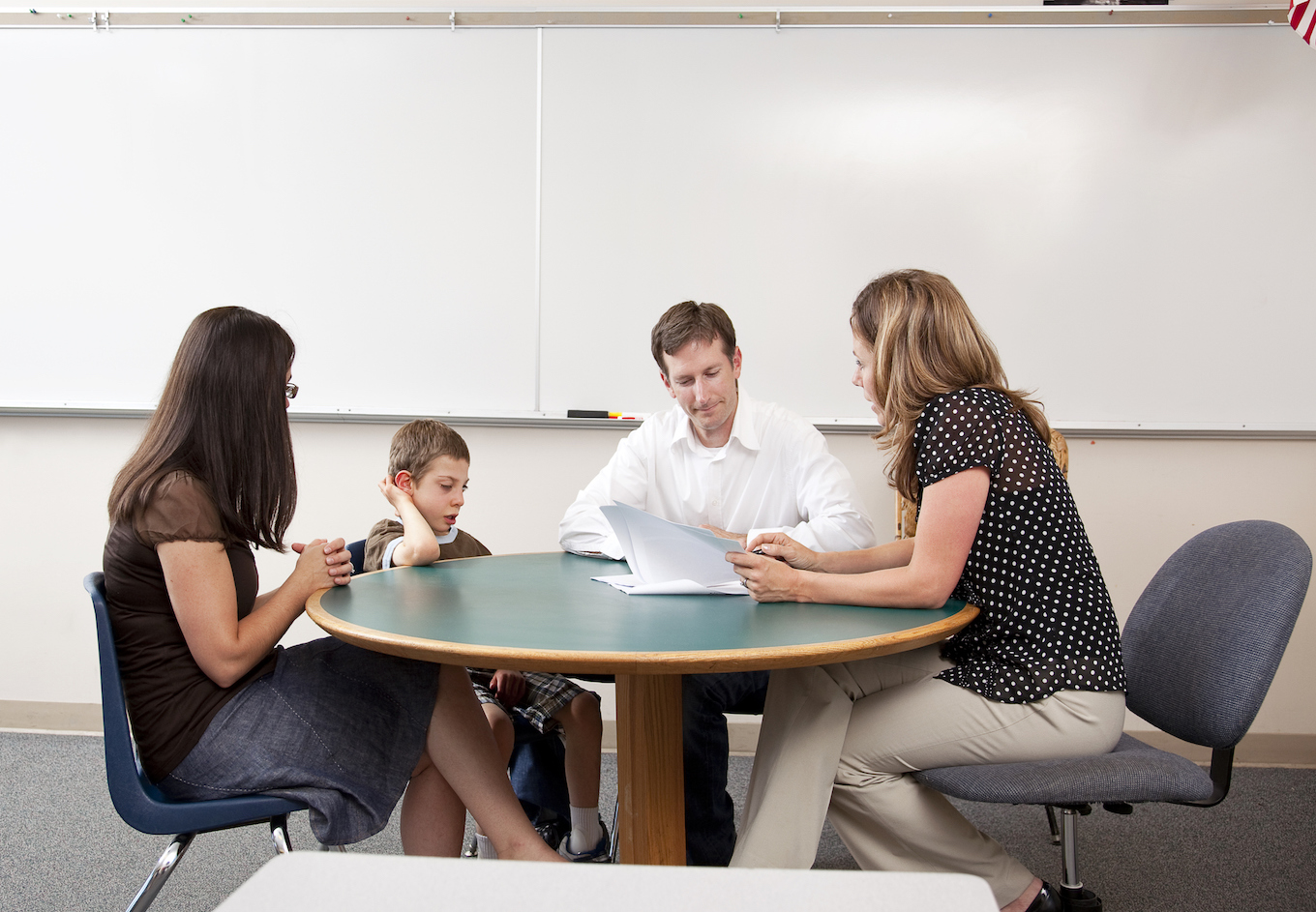
While Senters says it could be good to give teachers a heads up about the circumstances surrounding the foster or adopted child, he doesn't think parents should go into too much detail. "It's not our story to tell," he says. Instead, he usually just speaks about how the student may have moved schools or been in foster care for a while and may be a bit behind academically.
Have grace and patience while they catch up.
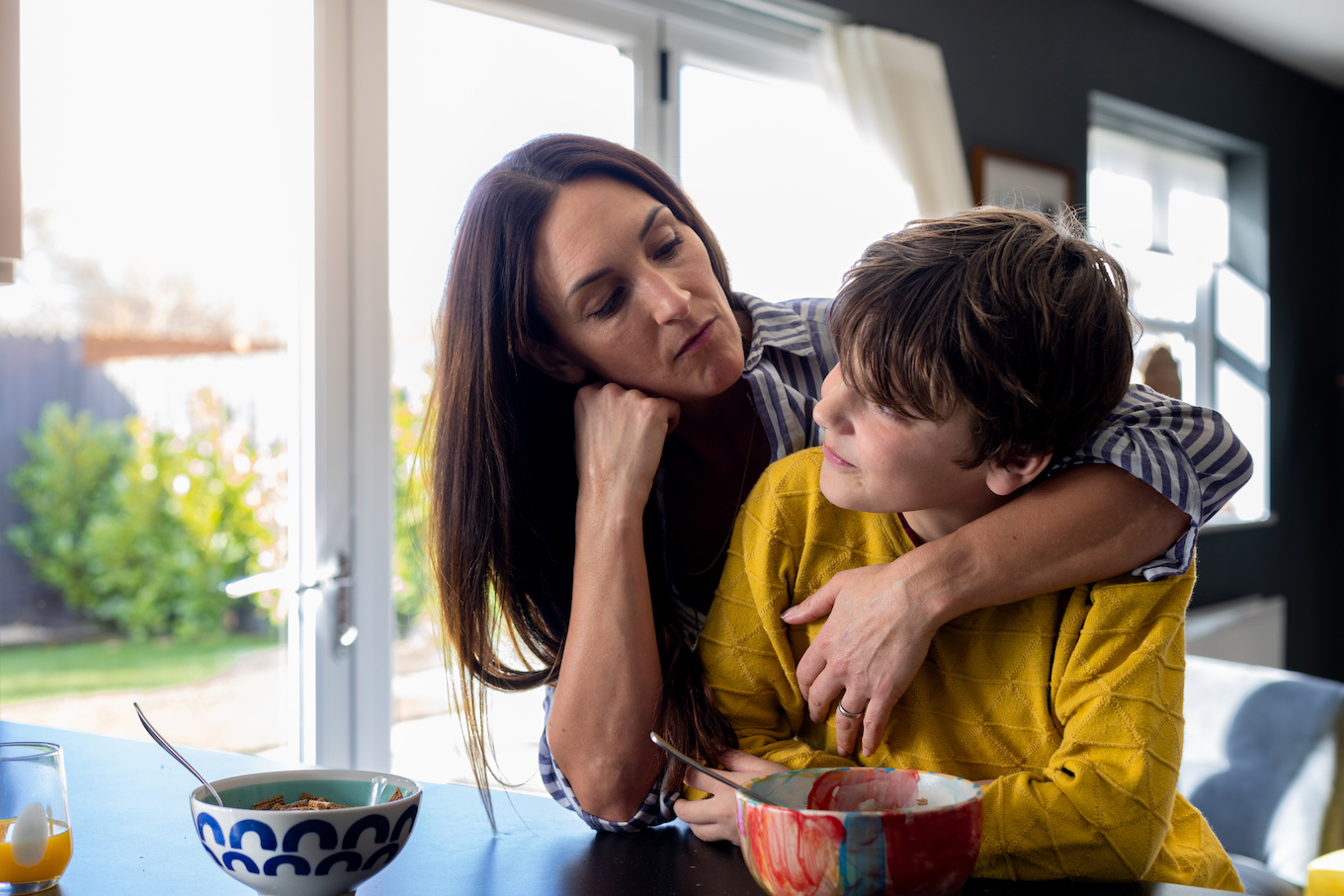
Senters says some of his foster kids struggled academically in the beginning because they were behind on math or reading skills. He notes that parents shouldn't expect perfect performance in school right off the bat.
"Kids who've experienced trauma need more time and grace than kids who have not experienced trauma," he says. "So hitting milestones and transition periods typically take longer."
Building relationships can be difficult.

Senters thinks one of the hardest things for foster children can be developing new relationships that they can trust, since they've often moved around a lot and had that trust broken. He says it's normal for the kids to be slow to make friends, as they can sometimes be more reserved at first.
Have a routine.

The longer a parent is consistent with their adopted or foster child, the better. Senters says that a good routine can help them feel more settled, as many children may have come from "frantic, sporadic, inconsistent" environments. He suggests implementing predictable touchpoints, like making sure they go to bed at the same time each night to create a feeling of consistency.
Ensure there's one-on-one time.

Senters may have a lot of kids, but he makes sure to get one-on-one time with each of them. He says that he tries to have both an evening and a morning conversation to check in on maybe their day highlights or struggles. These kinds of grounding conversations at night and before school can be helpful for a child.
Set boundaries.

Especially for families taking in older children, setting boundaries with them is important. "So like, 'Hey, you always call us after school; you come straight home; we need to know who who you're texting,'" Senters gives as examples.
He adds that kids may try to skirt rules by saying they didn't have to do that at their old house, but it's up to the parents to hold firm until things adjust over time. "You don't wanna energize their frustrations," he says. "You just are very relaxed and very chill when you're explaining it."
Make extracurriculars feasible.

In order to ensure that he can show up for his children's events, Senters makes sure to schedule them in a way that works for everyone. He says that he'll even speak to coaches to be strategic about scheduling and put multiple kids on the same team or have them do the same sport.
Let them know it's OK to fail.

"They're normally pretty nervous to try new things," Senters says of foster or adopted children. So when it comes to trying a school activity, like a sport, he tries to talk about his own failures so they see that it's normal if they're not the best.
It's more important that they're trying and building those friendships and skills.
Show up for them.
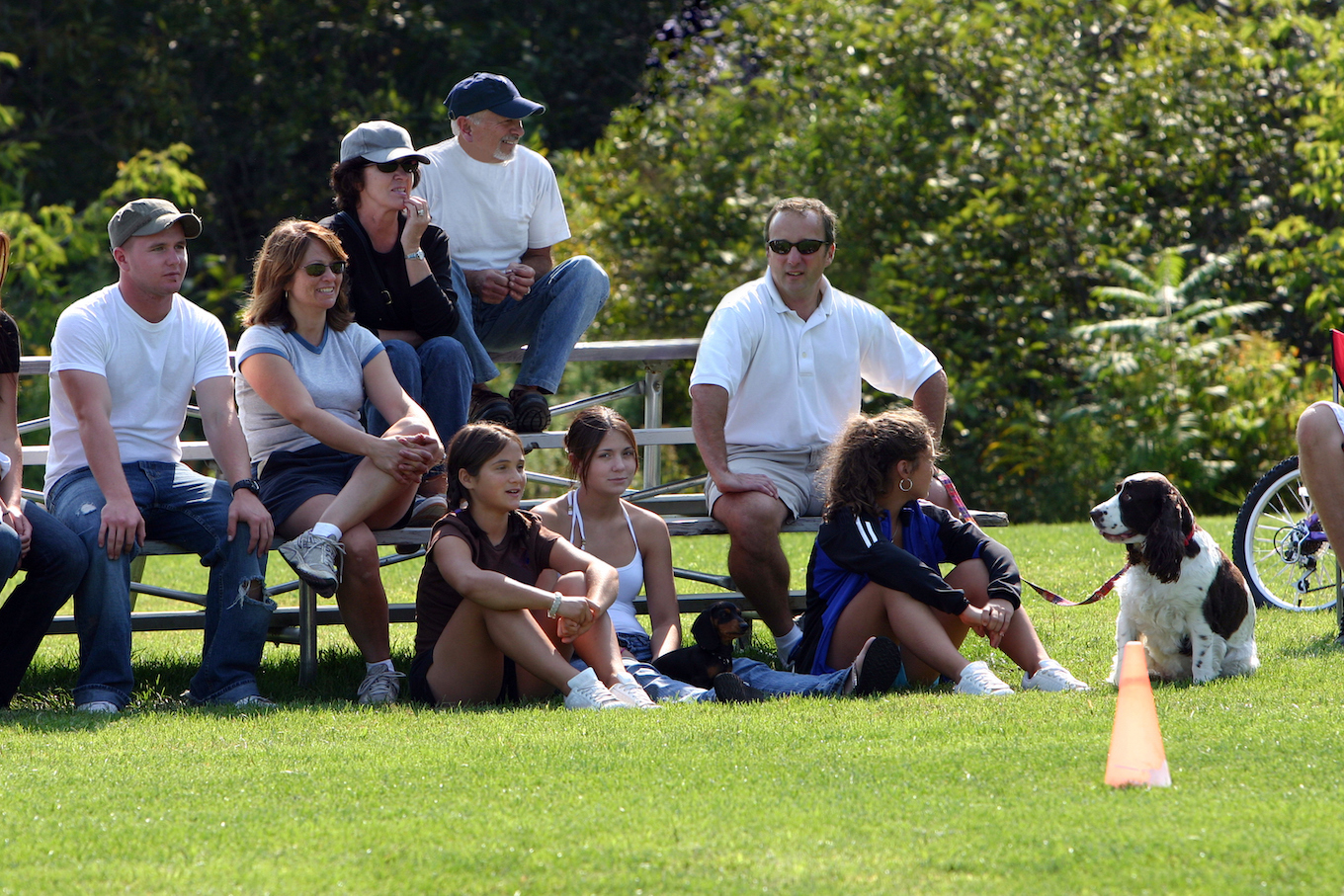
"I think the parents need to show up for their kids' [school] stuff," Senters says. For example, if the child ends up on a sports team, parents should go to the games. Again, it's about creating that sense of routine and normalcy and trust for a child.
Resources are available.

Especially for first-time foster parents, there are many things in place to help with the journey. Families can look into local nonprofits or even school resources that might exist to help with extracurricular expenses, tutoring, or emotional support.
Senters runs Ohana in Arizona, which helps provide "residential and support services" in the area, and other towns and states may offer similar options.
Additionally, Senters is launching a foster care parenting series on his podcast Unleash Your Purpose this fall, which will offer more resources and advice to those fostering children.
Kids are resilient

While things may be hard in the beginning of a foster care or adoption journey, especially for kids going to a new school, Senters reminds us that kids are "resilient" and "adaptable." He says, "If they have a positive, caring adult who loves them, who is there for them, they will excel."
All it may take is some time, grace, and patience.




